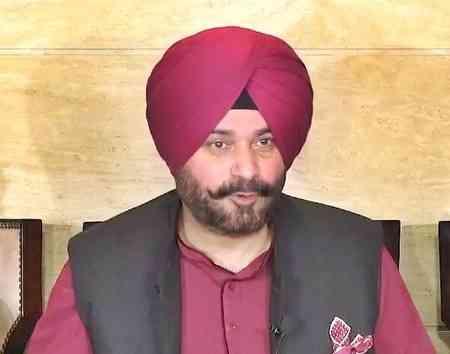Reactions to status-quo on RBI’s decision to not reduce rates
Author(s): City Air NewsWe have received reactions to status-quo on RBI’s decision to not reduce rates. Here are the reactions: “The rate cut would have been the need of the hour to provide the much-needed fillip to the real estate sector...

We have received reactions to status-quo on RBI’s decision to not reduce rates. Here are the reactions:
“The rate cut would have been the need of the hour to provide the much-needed fillip to the real estate sector and to facilitate growth. However, the real estate industry, in particular, has been benefiting through policy interventions to stabilize the market. The country has a large number of potential home buyers and a rate cut would have incentivized to improve their sentiments. Furthermore, we look forward to the government's decisions to lower rates in the future that will contribute to strengthening the GDP growth and create a robust economic framework.”
-Mr. Ketan Musale - Director, Dotom Realty
“The status - quo maintained by the RBI on the rate cut was much expected. The RBI's stance of taking a pause looking at the growth - inflation dynamics will not move the economy any further. In the past also, the advantage of the rate cut by the RBI was not passed onto the customers by a majority of the banks, which impacted the growth of the real estate sector. In the given situation, the RBI should not just look at the repo rate revision, but instead, take a holistic approach. It must consider an important area like the restructuring of realty loans, as well as, reintroducing of subvention schemes. It must take steps to streamline much-needed financing into the sector. An IPO of a small finance bank raising Rs 76,000 crore in such a volatile market, is an indication that there is no dearth of finance, but there is a serious issue of confidence. The RBI and the Government should work on this issue to bring back life into the system and the real estate sector, too.”
- Mr. Rajan Bandelkar - President, NAREDCO Maharashtra and Managing Director, Raunak Group
“The status-quo on RBI's decision to not reduce the rates comes as a surprise and contrary to the industry's expectations, which is skewed on the back of increasing inflation and depreciation of the rupee. From an economic standpoint, a cut in repo rates would have had a direct impact on home loan rates. The government had consistently looked at reducing the repo rates to boost demand. We further hope the lenders will pass on the benefits of the previous rate-cuts which will help in the revival of the industry. We believe there is a need to reduce the borrowing cost for the customers to bring in the next leg of demand which in turn will lead to the much-required growth in the economy. However, all eyes will be on the budget now, where a lot will be expected from the Government. The continuity of reforms under the second term of the current Government is needed to boost home-buyer sentiment.”
- Mr. Kaushal Agarwal - Chairman, The Guardians Real Estate Advisory.
"The pause in the rate cycle comes as a surprise given the dismal growth for the second quarter of 2019-20 and the likely persistence of a slowdown. Clearly the RBI has responded to hardening headline inflation and rising inflation expectations of households. This suggests two things. Any sustained increase in headline CPI inflation (whether or not it is primarily driven by supply shortages that the RBI itself acknowledges as transitory) above the median of the target range of 2 to 6 per cent will cause make the MPC anxious and translate into a pause. It also seems that the RBI wishes to see the lagged impact of its front-loaded 135 basis point cut in the policy rate along with some of the slew of fiscal measures plays out for future growth. We expect some tightening in bond yields in response to this surprise. Given the paucity of loan demand, banks are likely to chase assets and the transmission process could gain traction. However the flight to safety and large risk premiums for risky borrowers will persist."
- Mr. Abheek Barua, Chief Economist, HDFC Bank
"Despite the current situation in the overall economy, RBI’s decision to not lower interest rates has come as a disappointment to the real estate industry. The urgency to take measures to revive growth in the real estate was the need of the hour at the present scenario. However, the government recently announced Rs 25,000 crore funds for stalled affordable and mid-segment housing projects across the country to bring relief to the ailing residential sector and homebuyers. A rate cut would have surely boosted confidence in the segment bringing in the much-awaited momentum in sales. We still hope that the growth priority prevails and a substantial easing is brought about in the next policy cycle."
-Mr. Anuj Khetan - Director, Vijay Khetan Group
“With RBI maintaining status quo on policy rate front, it is important to focus on improving the transmission of the past rate cuts. At 5.15% the repo rate is very near the historical low, but it is yet to lead to any sort of revival in consumer demand. The reason being that the benefits of the past rate cuts have not been passed on the customers. Hence, it is important to focus on effective transmission. Also, with this being the last monetary policy before the all-important budget, the ball is now in Government’s court. Will have to wait and see what steps Government takes to revive the demand and economy as a whole. With RBI maintaining status quo on policy rate front, it is important to focus on improving the transmission of the past rate cuts. At 5.15% the repo rate is very near the historical low, but it is yet to lead to any sort of revival in consumer demand. The reason being that the benefits of the past rate cuts have not been passed on the customers. Hence, it is important to focus on effective transmission. Also, with this being the last monetary policy before the all-important budget, the ball is now in Government’s court. Will have to wait and see what steps Government takes to revive the demand and economy as a whole.”
- Mr. Manoj Gaur, MD, Gaurs Group & Chairman, Affordable Housing Committee, CREDAI
“Food inflation spiked to 6.9 per cent in October, a 39 month high, pushed up by a sharp increase in prices of vegetables due to heavy unseasonal rains. As per the RBI, the CPI, particularly food inflation is likely to soften only around Jan to Feb 2020. Under the circumstances, the apex bank had little option but to maintain status quo with regard to the REPO rate. With GDP growth having fallen to 5% in Q1 and further lower to 4.5% in Q2, mainly due to lower consumer demand, the ball is now in the Govt’s court to get the engine of the economy revved up again. It will be interesting to see what steps it announces in the coming days.”
- Dhruv Agarwala, Group CEO, Elara Technologies, the country’s only full-stack real estate technology platform that owns PropTiger.com, Housing.com and Makaan.com
“The real estate industry is disheartened by the status quo maintained by RBI today. With GDP growth plummeting to 4.5% Q2 and RBI cutting down growth forecast for current fiscal to 5% from 6.1% the expectation was that the apex bank will announce another cut so to improve consumer sentiment. The real estate being an interest sensitive sector would have benefited from any cut in policy rates provided government looked after its passing down to the consumer. But, to our surprise, RBI has maintained status quo mainly to check rising CPI inflation. The monetary stance will adversely impact chances of revival of the demand in the immediate period and a lot would depend on Govt action going forward.”
- Sharan Bansal, Joint Secretary, CREDAI Ghaziabad
“By maintaining the status quo, the RBI has given some kind of surprise after a long time. Unfortunately, it is contrary to our expectation. The whole industry was assuming a 25 bps cut. Most of the economist also had similar expectations. But it seems the inflationary expectation has outweighed growth projections. In the last few months, Government has announced certain measures to revive demand particularly for real estate sector like constitution of realty AIF, lowering GST on affordable housing among others. It remains to be seen what additional measures it takes to revive the economy.”
- Amit Modi, Director, ABA Corp & President (Elect), CREDAI Western UP
“The RBI has cut the repo rate by 135 basis points so far this year and growth sliding to 5% in Q1 and 4.5% in Q2, the expectation was for another deduction in the key policy rates as a lower interest rate would have helped raise the credit demand thereby providing much needed impetus to the overall economy of the country. Amid recent announcements by the finance minister to revive the real estate sector, the industry was hoping for some extra bonanza from the Reserve bank.”
- Anupam Gupta, Sales and Marketing Director, GBP Group
“After slashing the repo rate continuously for 5 times, RBI has maintained status quo on repo rate at 5.15 percent in today's monetary policy. Though, we expected a rate cut of at least 25 bps this time as well. With unchanged repo rate, we expect the government to take up some fiscal measures to boost the demand and enhance customer’s sentiment along with passing on the benefits of previous rate cuts to the end users.”
- Prateek Mittal, Executive Director, Sushma Group
“Given the increase in inflation, RBI had a difficult choice. So, it has for now decided to maintain the status quo. The policy stance remains accommodative with RBI adopting a wait and watch approach. The onus is now on the banks to pass on the previous rate cuts to businesses and consumers.”
-Mohit Ralhan - CIO & Managing Partner - TIW Private Equity
“The MPC took a pause from cutting the repo rate to take stock of rising inflation, the fiscal situation and the lagged impact of the recent measures announced by the Government. The MPC continued with its accommodative stance to support growth and has left the door open for future rate cuts. Additionally, the impetus for creating a secondary market for corporate loans should strengthen the system and provide liquidity.”
- Zarin Daruwala, CEO, India, Standard Chartered Bank
“RBI surprises the markets with a pause after 5 consecutive rate cuts. This is aligned with the current inflation trends. CPI inflation has seen a transient spurt due to rise in food inflation and RBI will continue to be cautious. Crude oil dynamics are expected to remain stable and any supply cuts will be offset by a weaker demand. The accommodative policy stance assures of a supportive interest rate regime and durable liquidity. The transmission of previous rate cuts has been passed on efficiently as reflected in the bond markets. Further, the government’s on-going initiatives will help revive the economy.”
- Mr. Rajiv Sabharwal, MD and CEO, Tata Capital
“The RBI’s decision to maintain the status quo is well within our expectation given the current economic conditions. We believe that the RBI has taken a more cautious approach keeping in mind the prevailing inflation pressure and rising food prices. This approach is more of tightening the systemic liquidity until the inflation rate normalizes. We expect further rate cuts to come our way if the inflationary pressures are well under control.”
- Mr. George Alexander Muthoot, MD, Muthoot Finance.
“The MPC's decision to pause is indeed surprising. This review marks a break from past trends as inflation concerns seem to have taken front-seat again.
Although they have stated that there is space for future action, I do not see rates going down by much in FY20 as inflation is expected to inch up sharply from here. The effectiveness of monetary policy in stimulating growth is limited in the current context. The recent GDP data showed that government spending is the only strong leg of the economy currently. I think the government will let go of the deficit target this year and try to boost growth through increased spending. We could see more sector-specific relief and/or stimulus packages in the coming months.
Fiscal slippage is generally perceived negatively by MPC. However, in the current context, I think MPC will be more tolerant of fiscal slippage and continue with accommodative cycle.”
-Ms. Anagha Deodhar, Economist - ICICI Securities on the RBI Monetary Policy
“Given the current economic and temporary inflation scenario, the unchanged policy rate is in line with our expectations. As there has been reasonably high liquidity in the system and limited transmission of the earlier rate cuts, RBI decided to maintain status quo. We expect the private capex to make an entry due to corporate tax cut and Banks to start lending aggressively to reduce existing liquidity.”
- Mr. Umesh Revankar, MD and CEO, Shriram Transport Finance.
“The MPC unanimously voted for a status quo on the policy rate, defying the wide expectations of yet another repo rate cut. The pause on the rates is attributed to transient inflationary risks, though the central bank affirms that there is space for policy action. On inflation, headline CPI in H2FY20 is seen in the range of 5.1-4.7%, when compared with earlier projection of 3.5-3.7%. However, inflation is seen moderating to 4.0-3.8% in H1FY21. On growth front, the output gap remains negative and RBI concedes that the economy is weakening further. GDP growth projection for FY20 is revised lower to 5%, when compared with the prior estimate of 6.1%. Though several fiscal measures and monetary easing will gradually feed into the real economy, triggering a moderate rebound in the activity during H1FY21. Given the growth-inflation dynamics, we still sense that RBI will deliver a rate cut of 25bps in February policy meeting given the widespread deceleration in the economy. Although RBI is concerned about near-term inflation risks, higher Rabi crop output will assuage the spike in food prices. Benign core-inflation will also persuade RBI to remain accommodative.”
Mr. Amar Ambani, Head of Research - Institutional Equities, YES Securities
“The central bank by keeping the rates unchanged has recognised that the need of the hour is to infuse confidence about the economic growth through a holistic approach. This will come by combining fiscal and monetary measures. Amidst the ongoing debate of whether the RBI will bottom out its rate cut cycle or continue to slash policy rates, the sixth bi-monthly monetary policy review of 2019 ended with the central bank keeping the policy rate unchanged at 5.15%. The conjectures over the RBI pulling a pause button over rate cuts turned out to be true as it has maintained its accommodative stance. The decision to maintain policy rates augurs well for the economy as the recently introduced policy reforms will take time to pan out and materialise. The economy needs to absorb the impact of the recently introduced reforms and the previous rate cuts. The real estate sector is expected to pick up due to the favourable policy incentives and the faster transmission of previous rate cuts. Moreover, with the inflation already crossing the 4 percent mark and expected to remain elevated for a few quarters, further rate cuts would have posed an upside risk. In light of the recently announced reforms doled out by the government, the real estate sector is expected to register higher growth in times to come. Measures brought so far are likely to show their impact. Complementing the corporate tax cuts and the creation of an AIF fund for stressed projects, the government should explore the options of increasing the money supply in the economy. That would not only encourage consumer spending but also stimulate investment flows and higher credit flow which has come down over the quarters.”
- Ramesh Nair, CEO & Country Head – India, JLL
“Looking at the market dynamics, we were projecting the RBI to cut down the key policy rates. A rate cut could have been ideal as we are moving towards strong policy changes at the national level which will leave long term effects on the realty sector and its allied industries. The previous repo rate reductions by the apex bank are yet to offer the complete results; that is held by the banks. We hope that future rate cuts happen soon, thereby creating a wave of positive sentiments in the market.”
- Mr.Sundeep Jagasia, Managing Director, Shree Krishna Group


 cityairnews
cityairnews 









